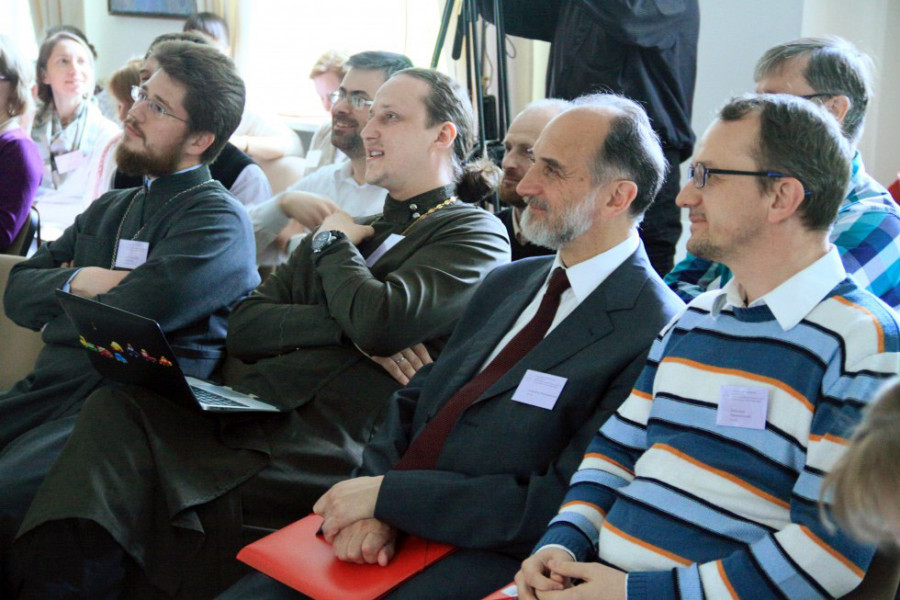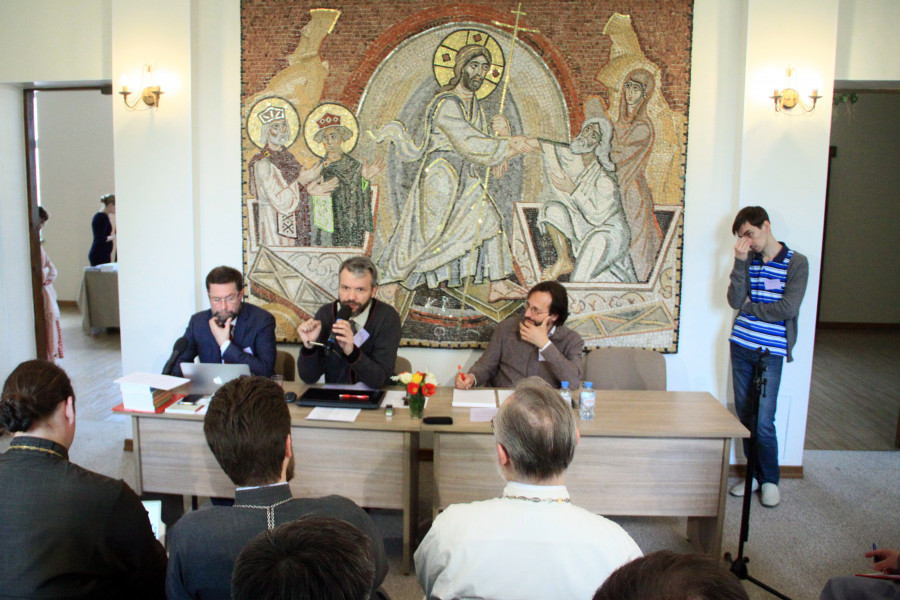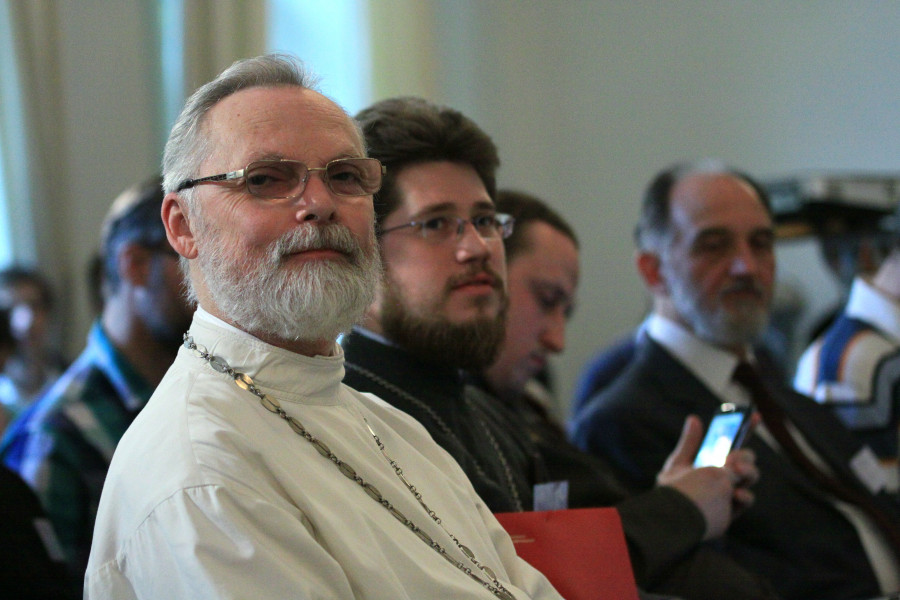SFI Opens Its VII Conference on Catechesis in Moscow
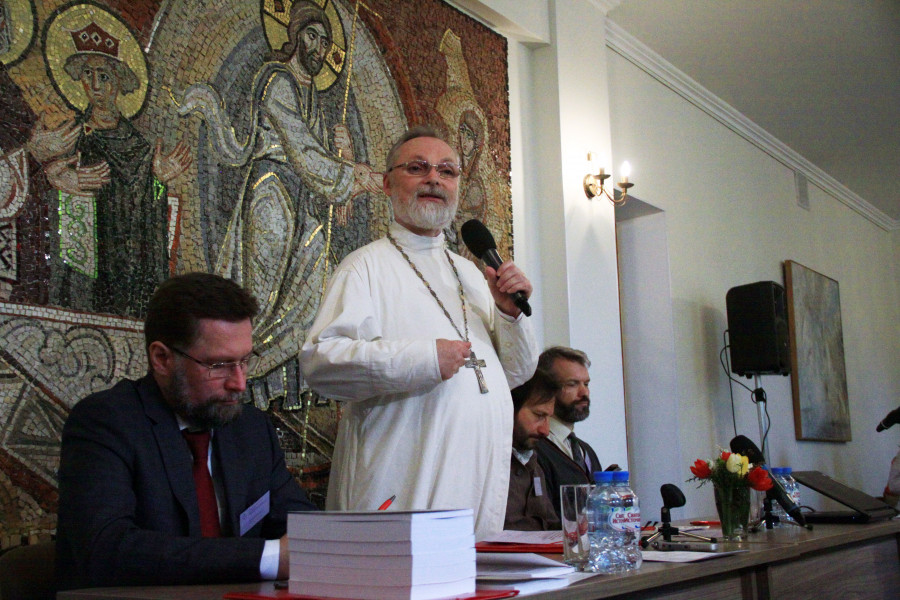
On 16 May, Saint Philaret’s Christian Orthodox Institute opened its annual International Theology Conference ‘Catechesis in the Tradition of the Holy Fathers’. The aim of the Conference is to explore the ways of preparing people for baptism and Christian life. This year, the discussion at the Conference will focus on the ways of helping adult believers who are preparing to be received in the church to meet Christ, as opposed to learning all kinds of information, which is supplementary or even completely unrelated to Christianity.
The Conference has brought together over 90 participants, both clergy and lay people from 29 cities and towns across Russia, as well as from seven different countries and 25 diocese of the Russian Orthodox Church.
“The fact that our discussion will be about Christ as the focus of preaching to catechumens, makes me very happy”, said SFI Rector Fr. Georgy Kochetkov in his opening address. “Just think: people are becoming Christians, but the church is no longer able to talk to them about Christ. The crucified and risen Christ is no longer preached. What are Christians supposed to believe then and where can they go to find it out? That is why we end up having all those ‘holy fires’ along with other myths. Can you blame people for not believing in Christ? Or should we, perhaps, blame ourselves? This is something even sacraments cannot heal. It seems to me that these questions should be addressed to the whole church, not just its Orthodox part, but to all confessions and denominations.”
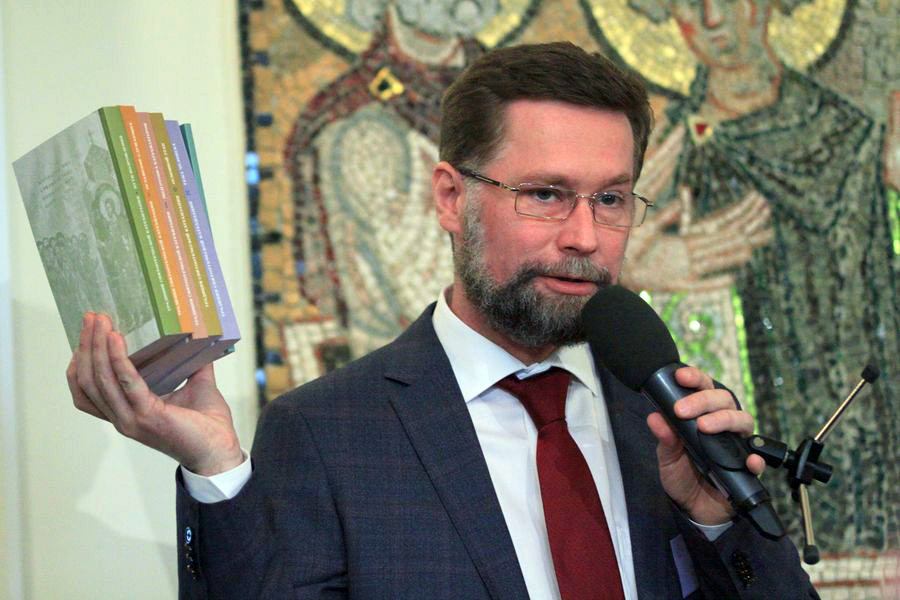
On 16 May, Saint Philaret’s Christian Orthodox Institute opened its annual International Theology Conference ‘Catechesis in the Tradition of the Holy Fathers’. The aim of the Conference is to explore the ways of preparing people for baptism and Christian life. This year, the discussion at the Conference will focus on the ways of helping adult believers who are preparing to be received in the church to meet Christ, as opposed to learning all kinds of information, which is supplementary or even completely unrelated to Christianity.
The Conference has brought together over 90 participants, both clergy and lay people from 29 cities and towns across Russia, as well as from seven different countries and 25 diocese of the Russian Orthodox Church.
“The fact that our discussion will be about Christ as the focus of preaching to catechumens, makes me very happy”, said SFI Rector Fr. Georgy Kochetkov in his opening address. “Just think: people are becoming Christians, but the church is no longer able to talk to them about Christ. The crucified and risen Christ is no longer preached. What are Christians supposed to believe then and where can they go to find it out? That is why we end up having all those ‘holy fires’ along with other myths. Can you blame people for not believing in Christ? Or should we, perhaps, blame ourselves? This is something even sacraments cannot heal. It seems to me that these questions should be addressed to the whole church, not just its Orthodox part, but to all confessions and denominations.”
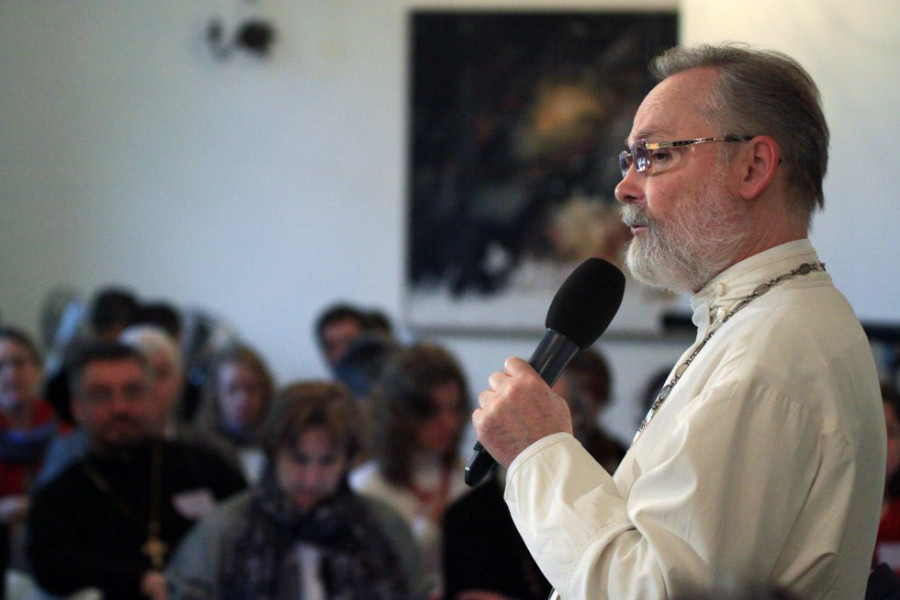
Nowadays, one may get the impression that talking about Christ is something that is simply not done in the church. Christian life is often reduced to either maintaining respectability and piety in one’s own life or to a weekly participation in the sacraments of the church. This hardly gives you a chance to meet the Christ of the Gospels, the One for Whom your soul seeks and Who is recognised by your heart.
Why does this happen? How to help people overcome the stereotypes about life in the church that, alas, are common enough even within our church communities? How to support people in their struggle to acquire the true foundations of Christianity? These questions will be the focus of the discussion at the Conference and the basis for sharing practical experience over the next three days.
Conferences of the series ‘Catechesis in the Tradition of the Holy Fathers’ have been held by Saint Philaret's Institute since 2010. In previous years, the discussions focused on the principles underlying the revival and today’s application of the tradition established by the Holy Fathers for preparing adults for baptism; on the question of training catechists; on criteria for assessing the quality of catechesis; on anthropological issues during the main stage of catechesis, and other issues.
